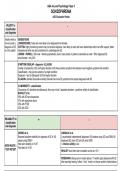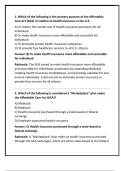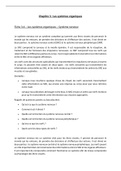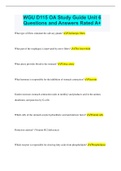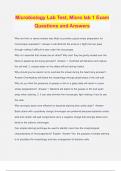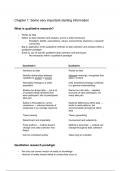SCHIZOPHRENIA
AO3 Evaluation Points
VALIDITY in -
classification
and diagnosis
Validity refers to GENDER BIAS
how accurate a LONGENECKER: males are more likely to be diagnosed than females
diagnosis of SZ COTTON: highly functioning women may not receive diagnosis, more likely to work and have relationships which can offer support, better
is to the patient interpersonal skills may bias practitioners to underdiagnose SZ
LORING + POWELL: 290 male + female psychiatrists, read 2 case studies, if patient is described as male = 56% diagnosed SZ
when female = only 20%
SYMPTOM OVERLAP - diagnosis - ELLASON
Overlap of symptoms of SZ and bipolar disorder, both have positive symptoms like delusions and negative symptoms like avolition
Classification - may just be variants of a single condition
Diagnosis - hard to distinguish SZ from bipolar disorder
ELLASON: claimed Dissociative Identity Disorder has more SZ symptoms than people diagnosed with SZ
CO-MORBIDITY - classification
Occurrence of 2 disorders simultaneously, they may not be 2 separate disorders - questions validity of classification
BUCKLEY et al:
50% with SZ have depression
47% with substance abuse
29% with PTSD
23% with OCD
RELIABILITY in + -
classification
and diagnosis
OSÓRIO et al. CHENIAUX et al.
Reported excellent reliability for diagnosis of SZ in 180 2 psychiatrists independently diagnosed 100 patients using ICD and DSM, 68
people using DSM-5 diagnosed SZ under ICD and 39 under DSM
Inter-rater reliability of +0.97 = criterion validity is low
INTER-RATER +
Test-retest of +0.92
TEST-RETEST
WHALEY found inter-rater correlation as low as +0.11
ROSENHAN’s being sane in insane places, 11 healthy ppts diagnosed with SZ
after reporting hearing ‘hollow’, ‘thud’, ‘empty’ not known auditory hallucinations
, CULTURE BIAS - COPELAND, PINTO + JONES, ESCOBAR
Copeland et al: gave description of patient to 134 US psychiatrists and 194
British psychiatrists, 69% US psychiatrists vs 2% British gave diagnosis of SZ
Pinto + Jones: British people of African-Caribbean descent are up to 9x as
CULTURE
likely to be diagnosed with SZ than white British people, though people in these
BIAS
countries aren’t (no genetic predisposition therefore)
= hearing voices is common in those cultures, seen as voice of ancestors, in
[Reliability refers to the consistency of the diagnosis over UK it isn’t
time and across cultures and psychiatrists] Escobar: white psychiatrists tend to over-interpret symptoms of black people
Biological Explanations - AO1
TIENARI - adoption study
Of 164 adoptees whose biological mothers had SZ, 6.7% also received diagnosis, compared to 2% in control group
RIPKE - polygenic
Combined previous data from genome-wide studies, compared genetic make-up of 37,000 with SZ to 113,000 controls
Found 108 genetic variations associated with increased risk of SZ
The most likely genes are ones that code for neurotransmitters, like COMT + AKT1 (BENZEL et al.)
SZ is aetiologically heterogeneous - different combos of genes are implicated
KENDLER - first-degree relatives are 18x more at risk than general population
Due to mutation - BROWN
0.7% risk in children whose fathers are <25
2% risk with fathers over 50
Genetics + -
Research support CA: equal-environment assumption for twin studies
GOTTESMAN, as genetic similarity increases, so does risk of SZ,
children with aunt/uncle - 2% chance, sibling - 9%, DZ - 17%
concordant, 2 SZ parents - 46%, MZ twin - 48%
JOSEPH, pooled data for all SZ twin studies pre-2001, found
concordance for MZs - 40.4%, DZ - 7.4%
Environmental factors - MORGAN, DIFORTI, MORKVED
Environmental factors can be biological and psychological
Birth complications increase risk - MORGAN
Smoking THC-rich cannabis in adolescence - DIFORTI
Childhood trauma - MORKVED found 67% of SZs and those with
related psychotic disorders reported at least 1 childhood trauma

